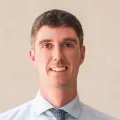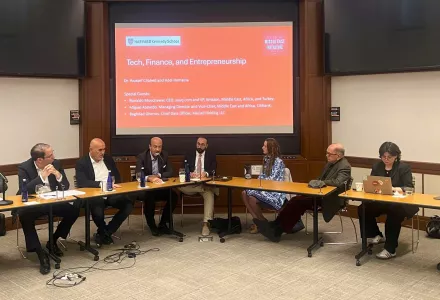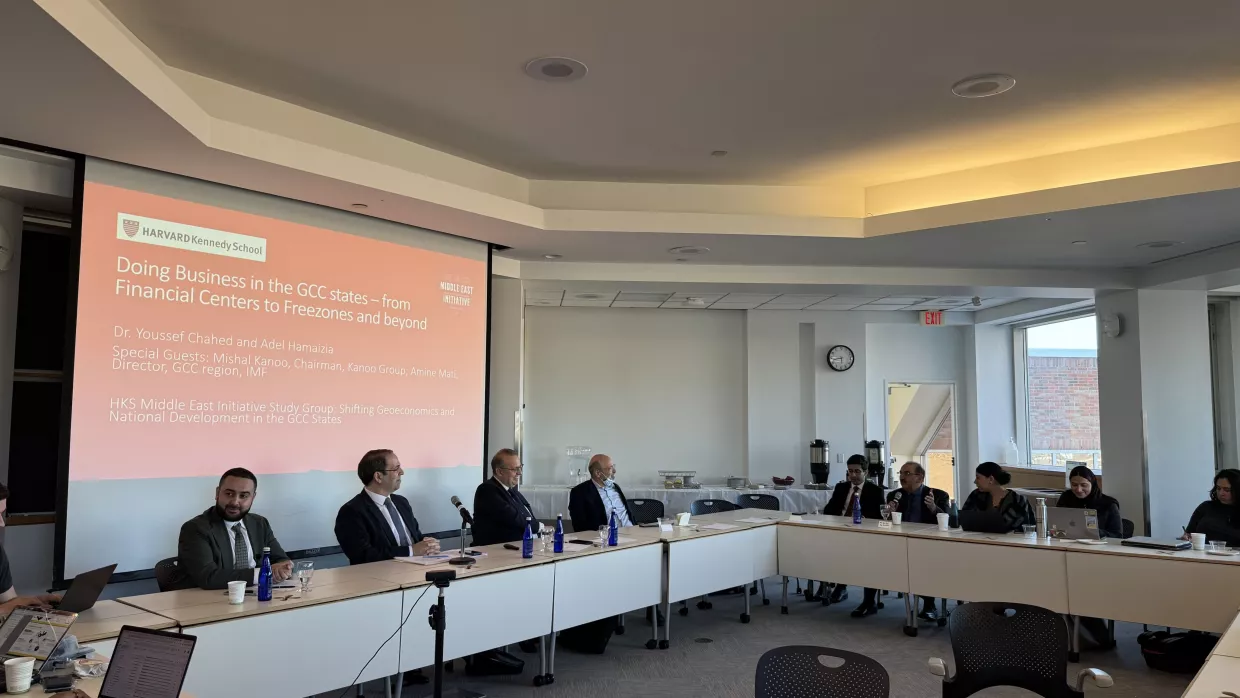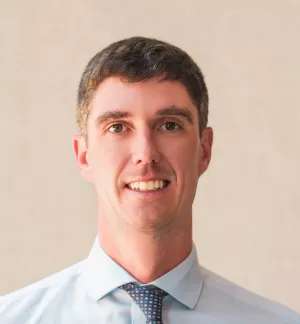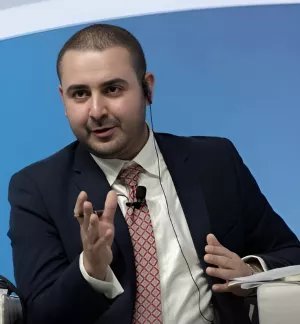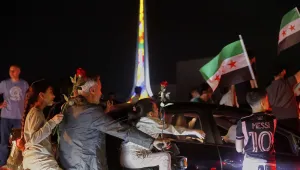Shifting Geoeconomics and National Development in the GCC States
In the spring semester of 2025, Dr. Youssef Chahed and Adel Hamaizia convened a study group through the Middle East Initiative to examine the shifting geoeconomics of the Gulf Cooperation Council (GCC) states. Held over seven weeks, the series brought together forty select Harvard students and fellows alongside thirteen leading practitioners to explore how Gulf countries are driving national vision programs to diversify their economies while at the same time navigating changing sources of international economic power and growing their international influence.
Achieving national development and economic diversification objectives
The GCC states have achieved remarkable economic growth over the last 50 years. For example, the UAE’s GDP per capita has grown by twelve times, from $4,551 in 1970 to $53,916 in 2024. GCC states have transformed into dynamic and global economic hubs in just a few decades and are grappling with questions of how to continue their economic growth while retaining their unique cultural heritage. In one session, the group conducted an in-depth analysis of national development in Saudi Arabia, learning how the historical site of Diriyah is being redeveloped into a city which combines modern infrastructure with Saudi Arabia’s unique heritage and history.
The GCC states are setting ambitious “Vision” development programs. They seek to continue their economic growth trajectories and achieve economic diversification away from fossil fuels through large-scale infrastructure projects, regulatory reforms to increase international competitiveness, and developing new strategic sectors, for example in tourism, manufacturing, logistics, financial services, consultancy, and technology. Although rapid progress is being achieved, participants debated the sustainability of these models given the region’s fiscal constraints, dependence on oil revenues, and whether a dynamic, innovative private sector can evolve out of the current models of state-led growth.
Building international influence through economic and financial diversification
Six of the world’s ten largest sovereign wealth funds (SWFs) are in the GCC and manage assets worth more than $4.2 trillion, but there are questions about whether to deploy this capital to meet short term political goals or to achieve long-term returns, or whether to invest domestically or internationally. Saudi Arabia’s Public Investment Fund has become a driver of internal economic restructuring, while the Abu Dhabi Investment Authority and Mubadala in the UAE are making significant investments abroad.
The SWFs are being deployed in sophisticated ways for dual objectives of supporting domestic economic diversification into new strategic sectors as well as into international investments, often blurring the line between domestic development and diplomacy. By investing in international infrastructure, particularly in the renewable energy sector, GCC SWFs are creating commercial and political relationships that will endure and in turn create dependencies. International economic initiatives such as China’s Belt and Road Initiative and the India-Middle East-Europe Corridor are providing further opportunities for some states, particularly the UAE and Saudi Arabia, to transform into global logistics and connectivity hubs.
GCC states balance co-operation and competition
The study group also assessed the challenges of intra-GCC economic rivalry. Cities like Riyadh, Dubai, Abu Dhabi, and Doha are all positioning themselves as business and innovation hubs, often duplicating infrastructure and business sectors in aviation, logistics, and finance. Competition has accelerated reform in some cases, but there is a question about whether this duplication reduces efficiency and may benefit from greater regional coordination in strategic business sectors.
Entrepreneurship and Technology
The finance sector in GCC states is maturing with continued growth and dynamism in venture capital, equity markets, and private equity. Despite its small population, the GCC now accounts for 10% of the world’s Initial Public Offerings. Through its migration policies and bureaucratic simplifications for starting a business, the UAE is becoming a hub for international talent and capital. The UAE and Saudi Arabia are making a bet on deep tech and artificial intelligence as the foundation of the next industrial revolution. They are building world-leading research and innovation through companies such as Humain and G42, and investments into data centers. At present, these countries have an opportunity to navigate US-China competition and bridge rival approaches and standards for technology. President Trump’s visit to the region in May 2025, where announcements on access to advanced semi-conductors and joint investments in data centers, further demonstrated how the GCC states are using technology to strengthen international partnerships.

